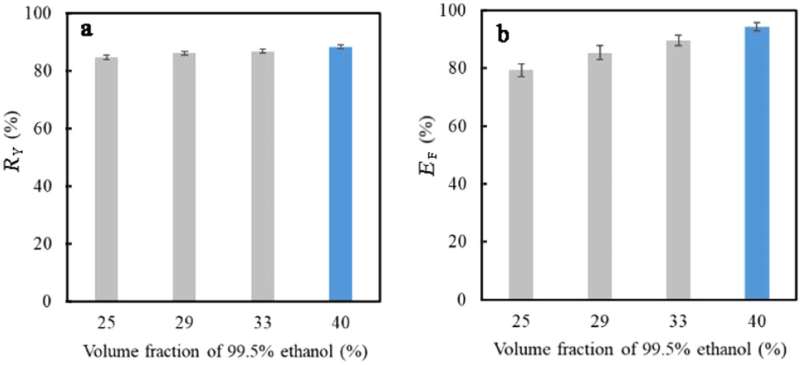
In a study published in the Journal of Bioresources and Bioproducts, a team of scientists led by Peifu Kong has successfully prepared tea tree oil-beta-cyclodextrin (TTO-β-CD) microcapsules with an unprecedented high encapsulation efficiency.
The research focused on optimizing the co-precipitation method to enhance the stability and functionality of TTO, which is known for its antimicrobial properties but has seen limited large-scale application due to its volatility and compatibility issues.
Essential oils (EOs) play an imperative role in our daily life and are mainly well known for their antimicrobial and antitumor activities. And tea tree oil (TTO), extracted from Australian native tree Melaleuca alternifolia, is almost colorless and hence appears to be preferable to apply as light-colored EOs for preventing the spoilage of visual effects on subsequent products.
In addition, they have been generally recognized as safe additives by the U.S. Food and Drug Administration. In recent years, extensive interests towards EOs have fostered the advancement of the fields of food, medicine, agriculture, and cosmetics. Especially in the field of food packaging, the utilization of EOs in conjunction with various hydrophilic biodegradable natural polymers can solve the environmental problems stemming from the traditional petroleum-based materials.
Moreover, it has been revealed that TTO can effectively inhibit not only the growth of bacteria and viruses, but also that of molds and yeasts. But why are TTO not used on a large scale?
It is mainly because of its high volatility, thermolability, and easy oxidation in undesirable environmental conditions, which impede its functional performance. Additionally, its high hydrophobicity severely limits its compatibility with hydrophilic biodegradable polymers.
The researchers found that microencapsulation using ????-cyclodextrin (????-CD) is a promising approach to prevent those performance reductions mentioned above and could achieve a superiority of prolonged-release as well.
Microencapsulation is a technique by which one material (core) is embedded within another material (wall) to form a microcapsule complex. And the ????-CD, recognized as a nontoxic and eco-friendly ingredient, is a truncated-cone-shaped cyclic oligosaccharide comprising seven glucose units. However, the low encapsulation efficiency has become an intractable and primary barrier for large-scale applications and commercialization.
Fortunately, Kong’s team prepared TTO-β-CD microcapsules using a co-precipitation method and focused on the impact of the volume fraction of ethanol in the co-solvent on encapsulation efficiency. Kong said, “Considering the time and energy consumption, an economical preparation procedure to make large-scale production feasible was established.”
Super-high encapsulation efficiency was achieved when a 40% volume fraction of ethanol was used for the microencapsulation procedure, where the recovery yield of microcapsules and the embedding fraction of tea tree oil in microcapsules were as high as 88.3% and 94.3%, respectively, which surpassed any value reported ever in previous studies, according to our knowledge.
Furthermore, the antibacterial activity of the fabricated microcapsules was assessed by a simple growth inhibition test using Bacillus subtilis as the study object, and the hydrophilic property was proved by a water contact angle measurement.
More information:
Peifu Kong et al, Preparation and characterization of tea tree oil-β-cyclodextrin microcapsules with super-high encapsulation efficiency, Journal of Bioresources and Bioproducts (2023). DOI: 10.1016/j.jobab.2023.03.004
Provided by
Journal of Bioresources and Bioproducts
Citation:
Scientists find microencapsulation technique boosts tea tree oil efficiency for sustainable applications (2024, April 29)
retrieved 30 April 2024
from https://phys.org/news/2024-04-scientists-microencapsulation-technique-boosts-tea.html
This document is subject to copyright. Apart from any fair dealing for the purpose of private study or research, no
part may be reproduced without the written permission. The content is provided for information purposes only.







